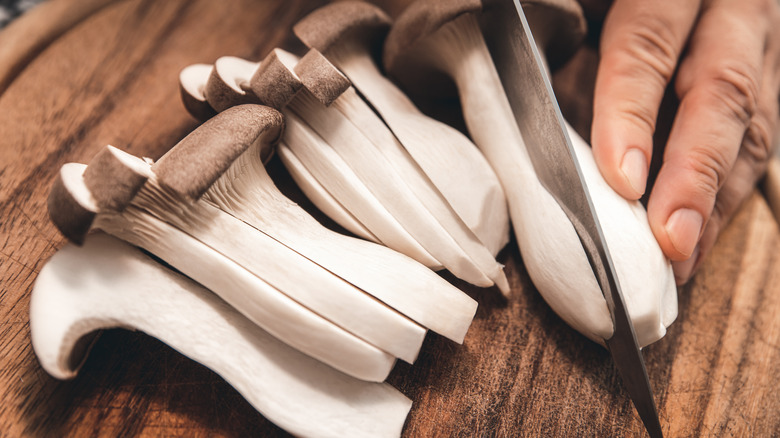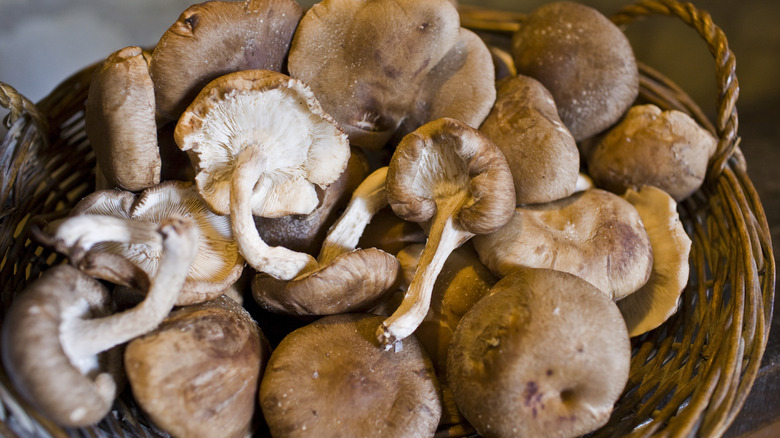Can Eating Mushroom Stems Make You Sick?
Chock full of good-for-you things like potassium and copper, which help make them a superfood, not to mention their irresistible umami taste, mushrooms have more nutrients than you'd think, making them an understandably buzzy food. With seemingly endless types of mushrooms, there are a host of ways to eat these fabulous fungi, from a side dish of stuffed mushrooms to a main course of vegetarian meatloaf. You can use these adaptogens in myriad unique ways, too, like nutritious mushroom coffee and even ice cream.
According to GroCycle, many people cooking with mushrooms discard the stems. However, although parts like portobello's gills are often removed, most mushroom stems won't hurt you. GroCycle explains mushroom stems are higher in fiber than their cap counterparts. This can make the stems a little less tender, though still edible. Indeed with some mushroom varieties, you may be tossing the best part in the trash. With king oysters and enoki mushrooms, for example, the stem is the most desirable part, says Fungially. However, not all mushroom stems are equally safe to consume.
Can you eat shiitake stems
That said, the shiitake is one 'shroom stem you might want to avoid. While not poisonous (regardless of the myth), the stems may not be all that delicious, says Fool Proof Living. Since the stems are super fibrous, they're hard to chew. The site recommends snipping the stems before cooking.
However, don't throw those stems away. They have plenty of other uses. The extra fiber that adds to the chew makes a great vegan jerky, according to VegKy. Similarly, Place at the Table recommends tossing the stems in a pot of water and boiling them to make a mushroom broth. Use the broth to add umami to rice, gravies, pan sauces, soups, and more. After you make the broth, Honeymoon Farm recommends using the discarded stems as compost.
One caveat to shiitakes: They should always be cooked. Shiitakes contain lentinan, a toxic polysaccharide, which might explain the poison myth (via Pharmacology Review). While a shiitake won't kill you, if the mushroom is eaten raw, it can cause an allergic reaction called shiitake dermatitis, which results in welt-like bruises on the skin. Only two percent of the population is sensitive to lentinan, but why tempt fate when cooking the mushrooms destroys the polysaccharide, making the mushroom safe to eat (via SC Times)?

